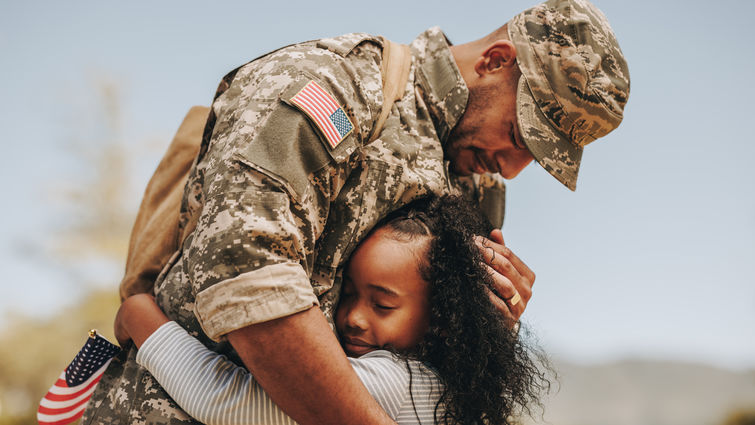

As they return to civilian life, some military veterans can face unique challenges in coping with the lingering impact of PTSD. Their families play a crucial role in their return but may feel helpless when their loved one exhibits behavioral changes or engages in unhealthy coping mechanisms. Clinical therapist, Blaize Ramirez, LCSW, is a Marine Corps veteran who has worked with veterans and their families to improve mental health and restore family dynamics.
Themes among patients
Ramirez says veterans have expressed difficulties with talking about their traumatic experiences and often have developed unhealthy coping methods to numb or escape the painful memories of their trauma. She says this can often leave families of veterans feeling isolated from their loved ones, as they feel helpless in their efforts to understand their difficulties.
“I want veterans and their families to know that they are not in this fight alone,” Ramirez says.
Unhealthy coping mechanisms:
To alleviate their distressing symptoms, some veterans may turn to unhealthy coping mechanisms to temporarily escape their emotional pain. Approximately 1 in 5 veterans with PTSD also have substance use disorder, according to the U.S. Department of Veteran Affairs. Experts say the relationship between PTSD and substance abuse is complex, as both can exacerbate and perpetuate each other.
- Self-medication: Veterans with PTSD may resort to alcohol, prescription medications, or illicit substances to numb emotional pain and feel as if they’re regaining a sense of control. The temporary relief offered by substances can mask underlying symptoms, leading to a cycle of dependence and worsening mental health.
- Avoidance and isolation: PTSD can cause veterans to isolate themselves from others due to fear, anxiety, and shame, leading to poor family dynamics. This isolation can foster an environment conducive to substance abuse.
“It is especially important when providing mental health care to veterans and their families that providers are culturally competent in military culture,” Ramirez says. “Veterans and their families have unique needs that require a certain degree of understanding of military culture to provide relevant services.”
Making veterans affairs a family affair
Ramirez says family involvement can strengthen communication, rebuild trust, and foster a sense of unity, ultimately facilitating the veteran's healing journey and minimizing the risk of resorting to unhealthy coping mechanisms. Involving family members in therapy sessions and educational programs not only enhances their understanding of PTSD but also equips them with the tools to provide emotional support and promote healthy coping mechanisms.
She also says the family plays a vital role in the recovery and well-being of veterans, as they provide a crucial support system and can offer unique insights into the veteran's experiences and needs. This approach also helps therapists educate families to familiarize themselves with warning signs, triggers, and ways to support their veterans.
“Young people with parents suffering from PTSD can experience confusion, feelings of uncertainty, and fear,” Ramirez says. “I want them to know that they have support here where they can learn about PTSD, how it has impacted their parents, and also develop coping skills to manage the emotional impacts their parent’s PTSD has had on them and their family dynamics.”
If a veteran in your life suffers from PTSD or other mental health issues, Loma Linda University Behavioral Health – Murrieta offers an array of mental health services and treatments. To learn more or to begin the journey with an expert, click here.


